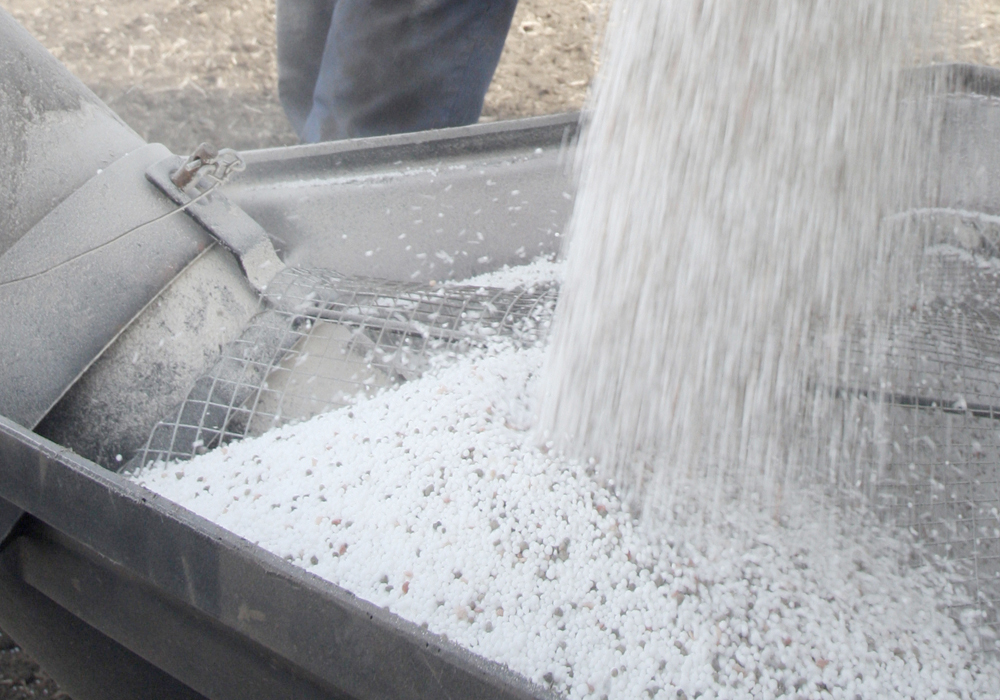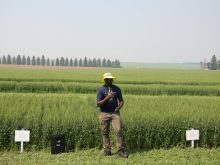Tougher environmental regulations, rising fertilizer costs, war in Ukraine and domestic political discontent are combining to form a stormy future for Canada’s farmers, say those hoping for some relief in the sector.
For Ontario Bean Growers’ vice-chair Jamie Payton, the immediate issue is tariffs on fertilizer from Russia and Belarus that affected farmers’ fertilizer purchases made before Russia invaded Ukraine.
“The decision to bring (tariffs) in initially was totally done without any research,” said Payton. “All it’s doing is hurting the farmers.”
Payton has nothing good to say about Russia’s President Vladimir Putin or his invasion of Ukraine but said the 35 percent tariffs imposed on fertilizer imports to Canada, even on purchases made before the war, has downloaded costs to producers.
Read Also

Huge Black Sea flax crop to provide stiff competition
Russia and Kazakhstan harvested huge flax crops and will be providing stiff competition in China and the EU.
“This is going to go down the food chain. That family that is struggling to survive paying exorbitant prices for food now — they are getting nailed right now — this is getting passed down to the grocery store,” he said.
Payton is not alone in the call for action amid high fertilizer costs.
University of Guelph professor Manish Raizada said the government must help producers deal with additional costs.
“I don’t think the general public appreciates what a ding this is on farmer profits. If it wasn’t for the higher commodity prices, this would have been horrible,” said Raizada.
He added that while commodity prices for grains and corn might be higher this year, they are coming off a decade of lower value.
“Grain farmers are just scraping by and in many cases, the only thing that is getting them by and doing OK is if they have off-farm employment or if they have massive acreages.”
Raizada called on government to offer some relief.
“I don’t like subsidies. Subsidies distort markets and overall, it’s a bad idea. It’s just when you get these price shocks. I don’t want farmers to bear that burden. It’s too much for them,” he said.
On the tariff issue, Payton said additional tariff funds collected by the government must be immediately refunded.
“Revoke the tariffs, refund them back to the major importers,” said Payton.
“They are in the process now of sending it down right to the farmgate level. I’ve already paid mine. It’s thousands of dollars.”
He said many large importers have delayed passing the tariff costs onto producers in hopes a deal could be brokered with the federal government.
“All this product was bought pre-war. We’re asking anything bought pre-war be revoked and refunded back to the fertilizer community,” Payton said. “If anyone wants to deal with Russia after the war started, you do that at your own risk.”
Payton warned of political consequences if such a move isn’t undertaken. He said a lot of goodwill would be gained if the government admitted it was a mistake.
As well, Raizada said the federal government’s proposal to reduce fertilizer emissions by 30 percent needs to be better thought out.
Dutch farmers are protesting their country’s moves to reduce farm greenhouse gas emissions, while Raizada highlighted Sri Lanka’s citizens’ actions that drove its leader into exile partly because of that country’s drive to cut nitrogen use.
Raizada said he is in favour of reductions in fertilizer use, “but one has to do it in concert with subsidies to allow farmers to experiment with other approaches, more sustainable approaches so they don’t take that risk, they aren’t taking that burden on.”
With fertilizer production representing one to two percent of global greenhouse gas emissions, Raizada said there should be a greater priority on emissions from other industries, “not food and not farmers.”
That sentiment is shared by Payton.
“This is what troubles a lot of us, that people that can’t damn well afford any more higher cost of living. They are getting nailed again because of a federal government that is not in tune with what is happening here,” he said.


















